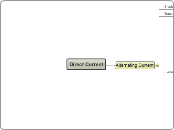Direct Current
Alternating Current
Brushless Motors
Transformers
Electric Timer Devices
Basic Timed Motor Controls via Capacitor Contactors
Simple Electronics with diodes, resistors, and capacitors
Numerical Control Machines replace hand-operated machines in most industrial usages due to their high accuracy and repeatibility.
Complex Electronics with "Computer Chips" such as the classic 555 timer chip.
Industrial Computers by IBM become popular
Unimate Robotic Welding Machine becomes the first mass-implemented industrial robot
Advanced Object-Based Computer Programming Languages (like C++) flourish
Personal Computers become smaller, more powerful, and less expensive
Automation Moves from Industry to the Home, making many unpleasant tasks, particularly cleaning, less difficult.
iRobot markets the wildly successful Roomba Vacuum Cleaner Robot, creating other, similar models for pools, rain gutters, and other places that are difficult or annoying to clean.
Future Expectation: Most appliances will become self-cleaning with the addition of simple robotics algorithims and components, resulting in a cleaner, healtheir world.
Future Expectation: Robots will be used in ever more complex tasks, such as driving us to and from work, the preparation fo food, and of course security.
Furby and Aibo are released, making robots into cute pets that play with children while educating them about language and math.
Future Expectation: Robots will be used as heavily upgraded "baby monitors", tracking and corralling children to designated areas, teaching children about math, science, and art, as well as providing friendship and companionship.
Future Expectation: As people become more and more attached to robots, they will treat robots more and more like a combination of pet and servant. A useful entity that one still has emotional attachments to.
